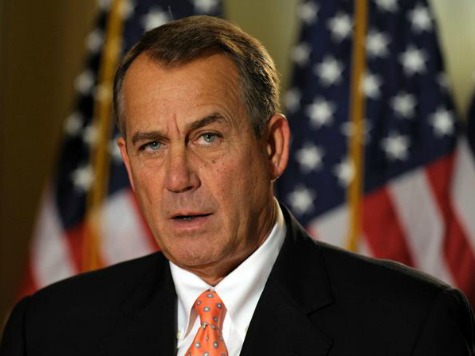
The future leadership of the House GOP conference may be decided by a procedural motion on the morning of January 3rd. When the new 113th Congress convenes that day, the first order of business will be to elect a Speaker of the House. As my colleague Matthew Boyle reported, however, some GOP members are planning to preempt this vote with a motion to conduct the election of Speaker by secret ballot. If that were to happen, John Boehner may face a real fight to retain the Speaker’s gavel.
But if a member introduces that resolution for a secret ballot, the whole House will vote on that first. That vote will need to have a public roll call, meaning the American people, the press, and Boehner will know who voted which way. Even so, those who are considering this path forward to unseat Boehner know that Boehner and other establishment Republicans can’t legitimately oppose the concept of a secret ballot election for a leader of a political body.
It would be very difficult, politically, to vote against a resolution for a secret ballot. A secret ballot is sacrosanct in the American psyche. The procedure, however, would free Congressmen to vote for Speaker without fear of punishment or retaliation. If just a handful of Republicans vote for someone other than Boehner on the first ballot, he would be denied that gavel and the House would then move to another vote. Because of a current vacancy in the House, a member would need 217 votes to claim the Speakership.
A move to a second ballot could quickly get interesting. Seeing that Boehner is vulnerable, other members would start trying to build support for their own nomination. If this coalesces behind a single alternative to Boehner, then his speakership would be in serious doubt. The position of Speaker is built to a large degree on inevitability, i.e. the lack of any credible alternatives. Once that veil is breached, support for current leadership can melt away quickly.
It is also possible that, having failed to secure enough support in the first ballot, Boehner offers concessions to various members to win their votes. The chief source of Boehner’s vulnerability within the caucus has been his tendency to marginalize conservatives or enforce discipline for votes that are against conservative principles. A loss on the first ballot could provide the needed warning shot that Boehner needs to improve relations with the conservatives who make up the bulk of his caucus.
But, all of this rests on that first procedural motion. If a member comes forward to make that motion, then the 113th Congress will begin with a very new chapter.

COMMENTS
Please let us know if you're having issues with commenting.